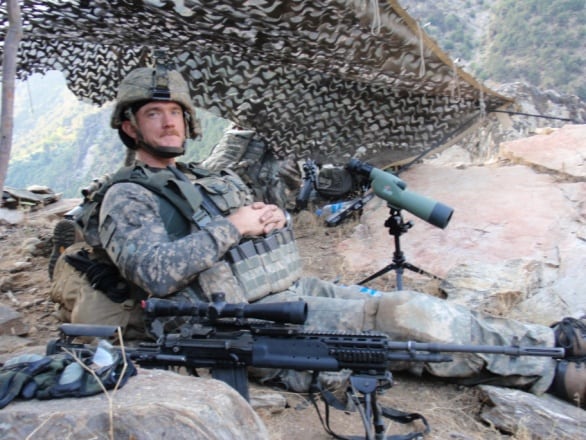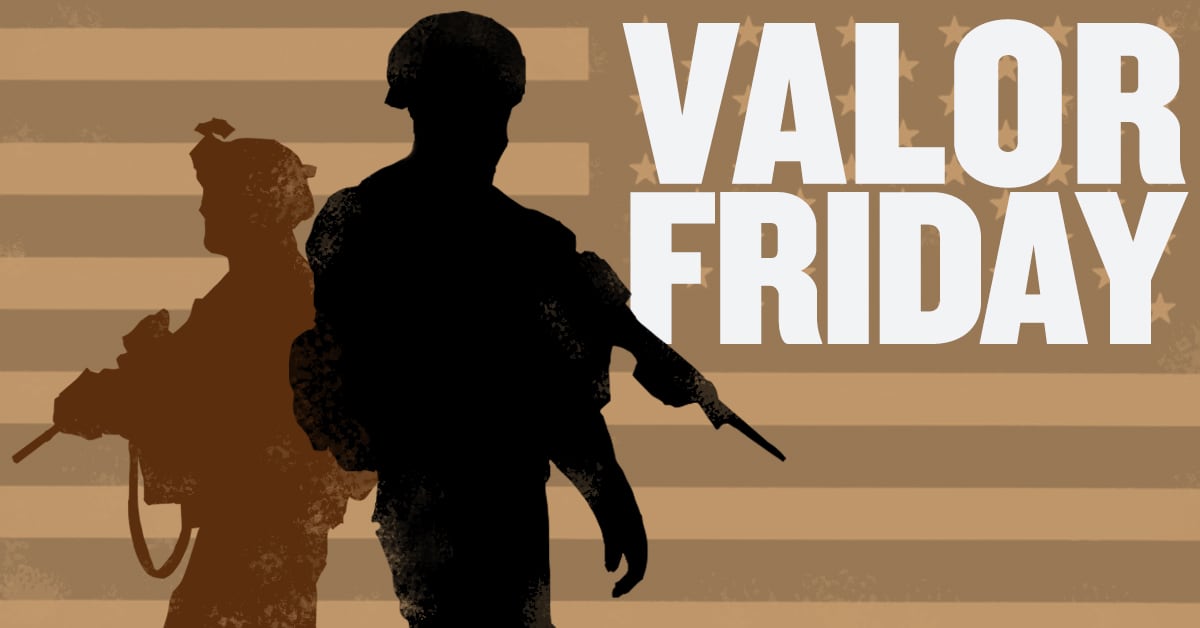Oct. 3 marked the 10-year anniversary of the nightmarish Battle of Kamdesh, a 13-hour, all out assault by upwards of 400 Taliban forces on a small detachment of 50 American soldiers at Combat Outpost Keating.
Located in northeastern Afghanistan, the geographical positioning of COP Keating was an unusual one by military strategy standards.
Nestled in the bottom of a steep valley, the outpost yielded advantageous high ground all around, leaving the men of B Troop, 3rd Squadron, 61st Cavalry Regiment, 4th Brigade Combat Team, 4th Infantry Division, as sitting ducks to an unruly enemy’s coordinated attack.
The battle that ensued Oct. 3, 2009, one that became subject of journalist Jake Tapper’s book, “The Outpost,” would claim the lives of eight American soldiers.
The attack, one of the deadliest in the now nearly two-decade war in Afghanistan, also exemplified American military valor that had not replicated since the 1993 Battle of Mogadishu.
Two Medals of Honor and nearly a dozen other combat valor awards made B Troop one of the war’s most decorated units.
Staff Sgt. Ty Carter was presented the Medal of Honor in August 2013 by President Barack Obama, just six months after Staff Sgt. Clinton L. Romesha received the same award at a White House ceremony.
Romesha and Carter became the fourth and fifth living service members, respectively, to receive the nation’s highest award for heroism in Afghanistan or Iraq.
RELATED

Just before 6 a.m. on Oct. 3, the Taliban began their assault, raining walls of fire down on the vulnerable Americans from every possible angle.
Rocket-propelled grenades, machine guns, mortars, a recoilless rifle, and small arms battered the scrambling soldiers.
Observation Post Fritsche, positioned to provide supporting fire for COP Keating, also came under a concentrated enemy barrage, rendering it useless.
Within two minutes, the first American soldier had been killed.
The 20 Afghan soldiers stationed alongside Americans quickly abandoned the fight, allowing Taliban forces to breach their side of the outpost within an hour of launching the attack.
Mortars pummeled the compound every 15 seconds, reports said.
With Taliban fighters closing in and setting fire to the majority of the outpost, Romesha knew he had to act fast, sprinting — uncovered — to recon the area and pull reinforcements to their front.
Romesha was able to take out an enemy machine gun team before an RPG blasted the generator he was using for cover, peppering him with shrapnel.
But Romesha disregarded his injuries and rallied his men together.
“Having those guys over there, those dear friends, we were all one team that day,” he said. “Throughout the course of the day, knowing they’re relying on you just as much as you’re relying on them, kept me going.”
“[We] weren’t going to get beat that day."
With a small team assembled, Romesha maneuvered throughout the battlefield, continually exposed, to destroy enemy targets, “including three Taliban fighters who had breached the combat outpost’s perimeter,” his citation read.
Amidst the carnage Romesha managed to establish radio communication with the tactical operations center, coordinating air support that killed over 30 Taliban fighters.
Word came down of severely injured soldiers at one of the more distant sectors of the battlefield.
After providing cover fire that enabled some of the wounded to regress toward the aid station for medical treatment, Staff Sgt. Romesha’s team embarked on a harrowing 100-meter push to recover additional wounded in the face of an intense enemy barrage. They arrived just before the Taliban could reach them first.
Nearby, Staff Sgt. Carter’s men were pinned down and running low on ammunition.
Understanding the consequences if ammunition ran out, Carter twice bolted across an exposed 100-meter stretch to bring back a resupply.
Returning from his second harrowing dash, an RPG exploded near the unarmored truck where his team was taking cover.
The blast knocked him unconscious and laced him with hot shrapnel.
When he came to, Taliban fighters had breached COP Keating and one of his soldiers, Spc. Stephen Mace, lay critically wounded in an exposed field of enemy fire.
Carter ran through RPG and machine gun fire to get to Mace, who would later succumb to his wounds, carrying him to cover before returning once more to check on another wounded soldier.
There, Carter managed to recover his squad’s radio and immediately coordinated a medevac.
Carter then “assisted in moving the wounded Soldier 100 meters through withering enemy fire to the aid station and before returning to the fight,” his citation reads.
With only his M4 in hand, Staff Sgt. Carter volunteered to remain behind and defend the exposed position until reinforcements arrived.
For hours, Carter burned through magazine after magazine of 5.56 ammunition to repel assailants that threatened to overrun their position.
Both Carter and Romesha would fight for another 12 hours until help finally arrived.
The Army vacated COP Keating following the battle, but not before destroying it. Eight men had given their lives defending it and protecting their fellow soldiers:
- Sgt. Chris Griffin
- Sgt. Justin Gallegos
- Sgt. Josh Kirk
- Sgt. Josh Hardt
- Sgt. Vernon Martin
- Spc. Stephen Mace
- Spc. Michael Scusa
- Pfc. Kevin Thomson
Romesha’s story would become the subject of the 2016 book, “Red Platoon: A True Story of American Valor,” which he co-wrote with Kevin Fedarko. He left active duty in 2011.
Carter would deploy once more to Afghanistan in 2012 before eventually leaving active duty in 2014.
Tapper’s book is the basis of a new feature film bearing the same name that is currently slated for a late-2019 release.
Read more about the Battle of Kamdesh here.
J.D. Simkins is the executive editor of Military Times and Defense News, and a Marine Corps veteran of the Iraq War.




